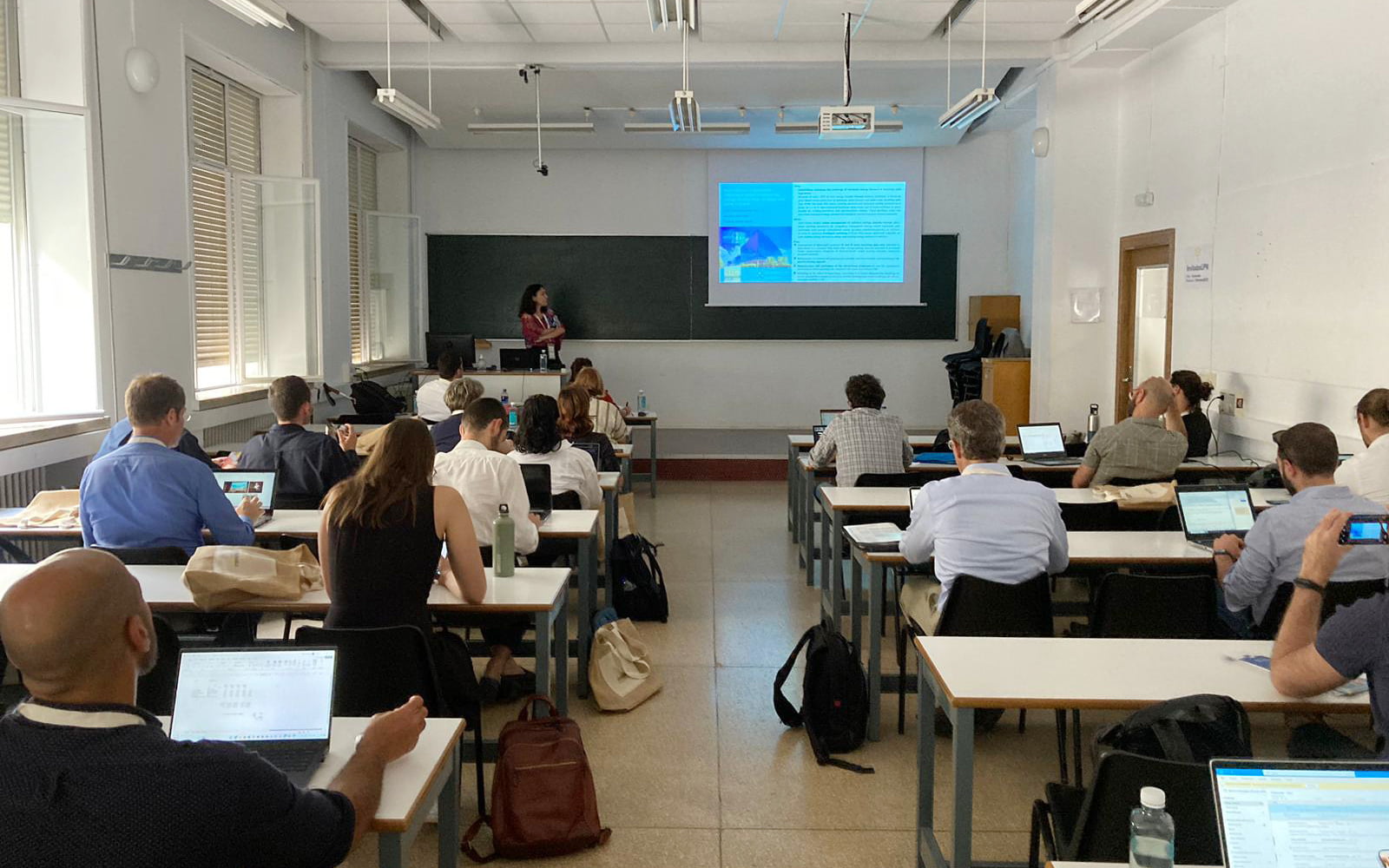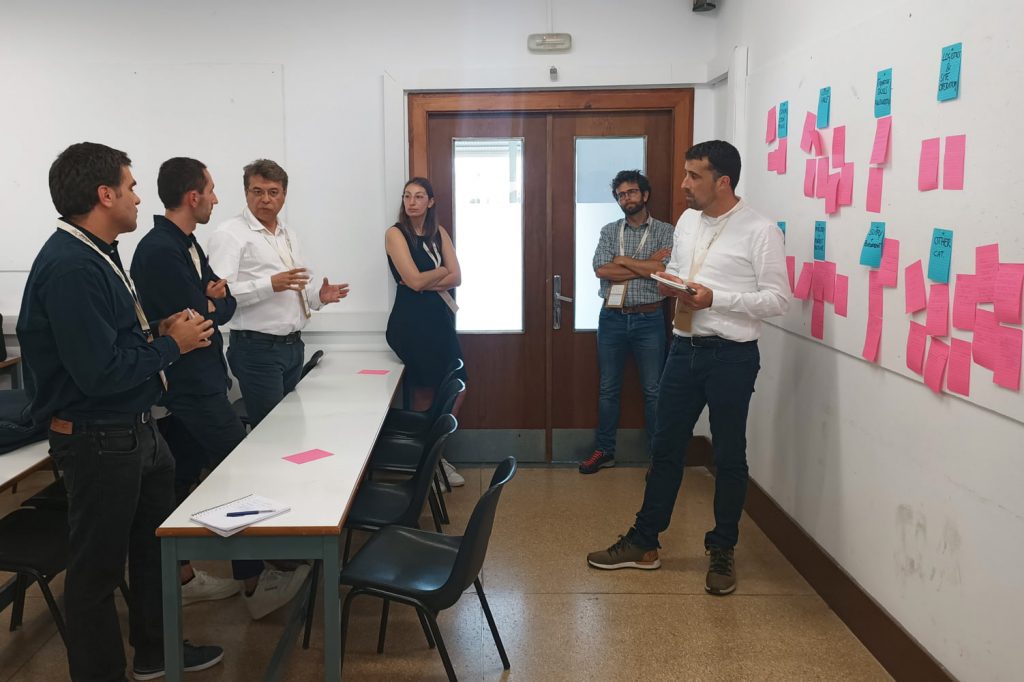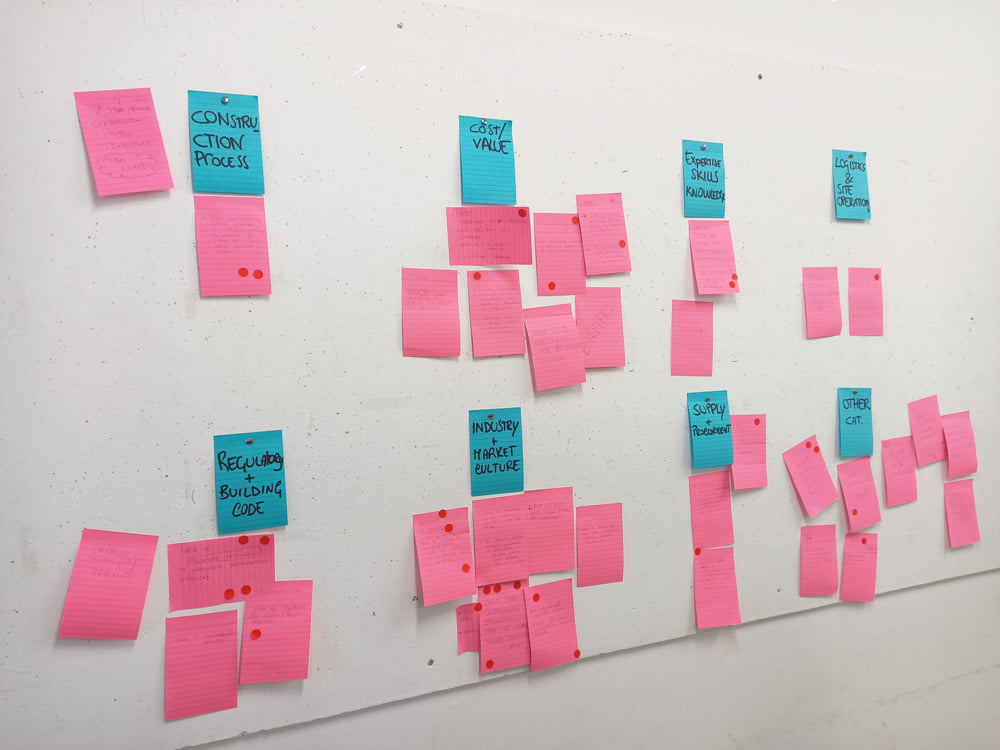50 shades of deep renovation: workshop insights from Sustainable Places 2023

The Sustainable Places 2023 conference in Madrid brought together experts and stakeholders in the field of deep renovation, ranging from researchers to industry professionals. As part of the conference, eight EU-funded projects, including INFINITE, joined forces to organize a workshop on industrial deep energy retrofit.
The common idea: there is no one-size-fits-all approach for deep renovation. Each context requires tailored retrofit strategies considering factors such as building typologies, climates, and countries. This was the reason behind the title “50 shades of industrial deep energy retrofit” was chosen.
The 2023 workshop served as a follow-up to the 2021 edition, which focused on defining barriers and solutions for in-depth industrial retrofit, resulting in a collaborative position paper on barriers and solutions.
Building on the success of that workshop, the 2023 edition set out to lay the groundwork for the next stages of policy development and rapid scaling up of deep energy retrofits from the current tens of thousands to millions of housing units deep energy retrofitted.
Participating H2020 projects included BuildUPspeed, DRIVE 0, ENSNARE, Giga Regio Factory, PLURAL, STEP UP, Switch2Save and INFINITE; with Huygens Engineers being the organizer, and Eurac Research participating in the workshop and presenting the project INFINITE.

The path of industrialization is full of failures
The introductory keynote speech by John van Oorschot emphasized the need for the sector to become aware of the trials and errors that pave the way to industrialization and need for holistic models in the deep retrofit sector.
The Industrial Housing Systems (IHS) is an evolution towards integrating mass-customization principles and on- and off-site production methodologies, combining efficient on-site method with a growing number of add-on prefabricated elements. Having been several reports of HIS benefits, it is still surprisingly a hardly-applied system beyond the demonstration in projects.
Preconditions for successful IHS implementation were explored, including:
- – Evolutionary process to establish both market and industry maturity
- – Adherence to the principles of a territorial (local) economy
- – A cost leadership position in the market, keeping pace with changing market requirements
Local Pop-Up Factory Concept
One promising concept that aims to increase efficiency in the deep renovation projects is the “local pop-up factory”. It involves establishing a factory in the district itself for the time of the district retrofitting program, producing and assembling industrialized prefab building components. This concept can significantly reduce transport emissions and logistics costs, while enabling individuality and mass customization.

Barriers and preconditions to industrialization
As workshop participants brought in their expertise and field of work, they discussed and prioritized the barriers and preconditions for successful industrialization in the deep-renovation market at the European level. Barriers identified included the lack of technical regulations, standards for active/hybrid façades, difficulties in altering existing production lines, and the fragmentation of the value chain.
Preconditions for successful industrialization encompassed:
- – centralizing the supply chain
- – exploring new business models like “façade as a service” and “cooling as a service”
- – establishing one-stop-shop solutions
- – adopting mandatory life cycle assessment methodologies
A positioning paper will collect the accumulated knowledge that emerged during the workshop, aiming to address the many challenges for a successful industrialization of the renovation sector toward scalable and sustainable deep renovation solutions.
The recording of the session is available on YouTube.
RELATED NEWS
Over 3000 Participants Join Webinar on Off-Site Innovation Featuring INFINITE
Great participation to the webinar “Off-site: idee e vantaggi per costruire e ristrutturare con un approccio industrializzato
INFINITE MOOC on “Façade Forward”
An online course to discover how façades can shape the future of sustainable construction
Digital tools, real buildings at the One Team BIM Conference
How industrialisation and digital transformation can work together to make building renovation faster, smarter, and more scalable.